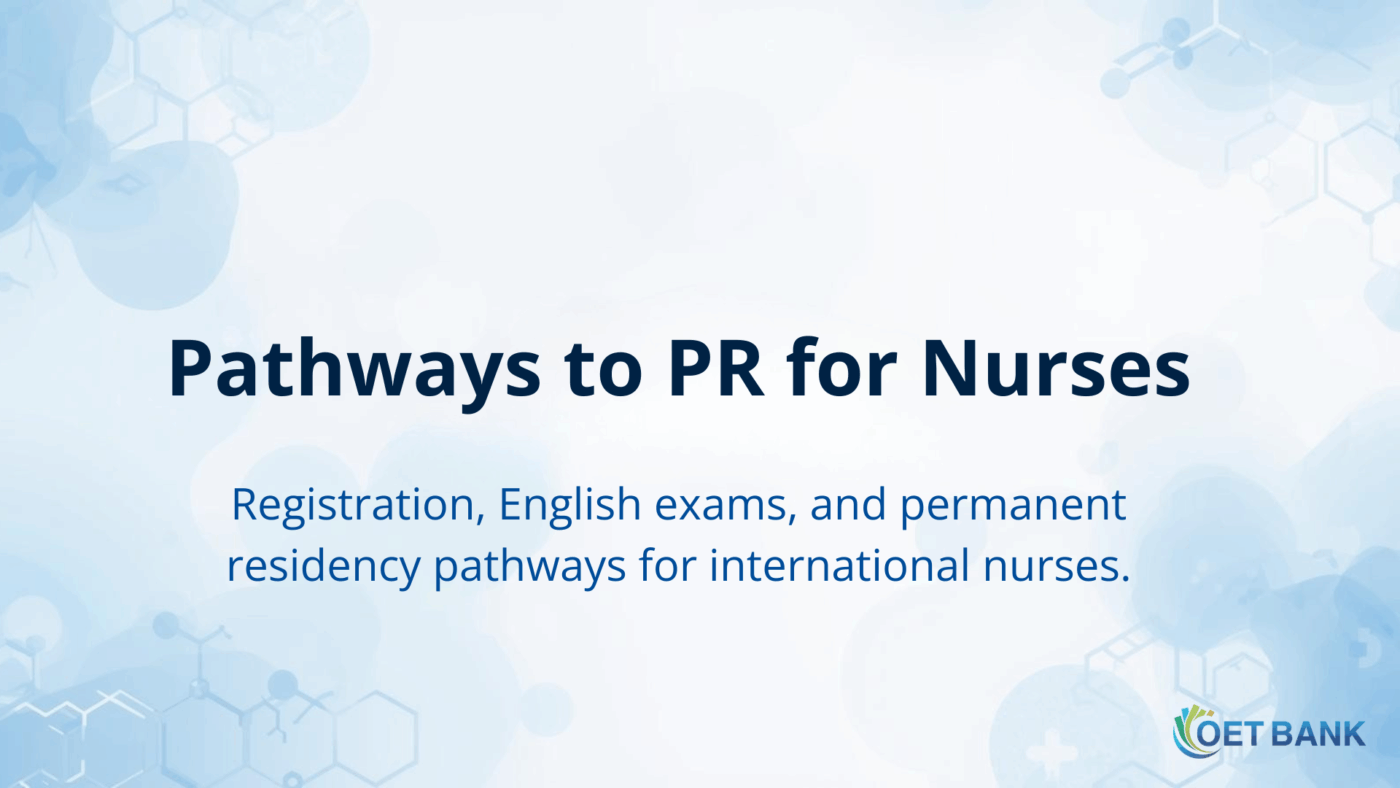Registration & Pathways
How to Gain PR as a Nurse or Care Worker Abroad
In recent months, we’ve received many inquiries from healthcare professionals interested in working as nurses in countries like Singapore or the UAE.
One common issue is that many don’t fully understand the registration requirements to become a licensed nurse abroad.
To help clarify, here’s a comprehensive summary of the main routes to obtaining PR as a nurse or care worker overseas.
Pathways to RR for Nurses and Care Workers
There are two main routes to registration and eventual PR as a nurse or care worker abroad:
- Meeting the Official Registration Requirements (Standard Route)
- Completing a Bridging Course
Many international nurses focus on Route 1 — preparing for exams like IELTS or OET to meet the English requirement.
However, even after 1–2 years of preparation, some find it difficult to reach the required score.
English exams, like most standardized tests, are not just about language ability — they also depend on test familiarity and exam technique.
For those who struggle to meet the English score threshold, the second route offers a practical alternative.
Route 1. Meeting the Official Registration Requirements (Standard Route)
The simplest and most direct option is to meet the registration criteria set by the national nursing boards.
Across major English-speaking countries, the core requirements are consistent:
- English Proficiency: IELTS Overall 7.0 (or OET Grade B)
- Nursing Qualification: NCLEX, OSCE, or equivalent licensing exam
Some countries also require relevant work experience or a bachelor’s degree rather than a diploma.
Among these, the English requirement is often the biggest challenge.
Achieving IELTS 7.0 or OET B is notoriously difficult, even for competent speakers.
While other tests like PTE or TOEFL are accepted in some cases, reaching the required level is still demanding.
In fact, many nurses give up on overseas registration because they can’t meet this English benchmark.
Route 2. Completing a Bridging Course
Some countries offer Bridging Courses, which allow nurses to qualify for registration after completing a specific training program.
Currently, this pathway is available in Canada, at institutions such as:
- Conestoga College (Toronto)
- Langara College (Vancouver)
The main advantages of these courses are:
- Lower English entry requirements
- Strong post-course employment support
Typically, the English requirement is IELTS 6.5 overall (no band below 6.0).
At Conestoga College, students can even enter from the ESL pathway with an IELTS 5.5 or higher.
Although this extends the total study time and cost, it allows students to develop real-life communication skills instead of spending years focused solely on test prep.
However, there’s a key limitation: This qualification is valid only within Canada.
If you later wish to register as a nurse in another country, you’ll still need to meet that country’s English requirement.
For those planning to settle in Canada long-term, this route is attractive — but it’s important to be aware of its limited flexibility.
Can Studying at a Local College Lead to RN Registration?
A common question we hear is:
“If I study nursing at a local college or university, can I become a registered nurse automatically?”
The answer is no — even with a local nursing degree, you’ll still need to submit proof of English proficiency.
So why do some still choose to study at these schools?
Mainly for two reasons:
- To obtain an Assistant Nurse (AIN) qualification.
- To strengthen English and foundational skills while preparing for the official English test.
Becoming an Assistant Nurse allows you to work in healthcare with relatively good pay and an easier visa process — a reasonable option for those seeking long-term residence.
Are English Requirements Lower in Singapore or the UAE?
Yes — compared to Western countries, the English requirements for nurse registration in Asia are more lenient:
- Singapore: IELTS Overall 5.5 or higher
- UAE (Dubai / Abu Dhabi): IELTS Overall 5.0 or higher
However, while the English score requirement is lower, work experience is heavily emphasized — especially in Singapore.
Although you can technically apply if you have worked within the past five years, in practice, employers prefer applicants with recent (within two years) clinical experience.
Study with OET BANK
Stop wasting time comparing OET materials.
With OET BANK, you get:
- Premium-quality OET materials, built by professionals
- A focused, efficient study path — no unnecessary content
- A system designed to help you pass OET once — without trial and error
If you want to prepare properly and pass with confidence,
you don’t need to look anywhere else.
Pick your materials and start today — with OET BANK.




